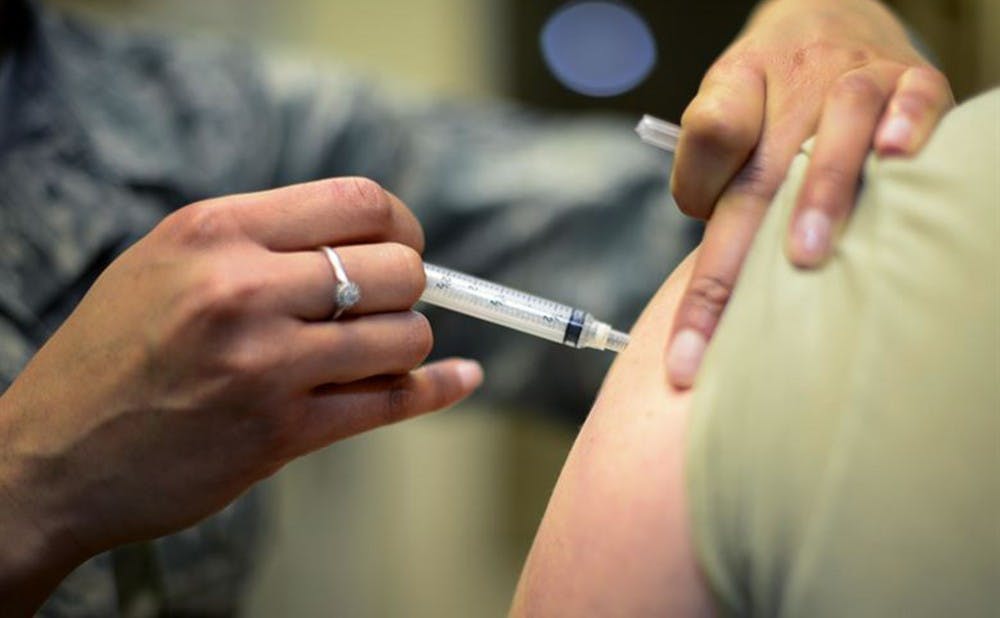Several other colleges have adopted policies similar to Duke’s fall vaccination requirement.
Administrators announced April 9 that Duke will be requiring all students to receive the COVID-19 vaccine in order to enroll for the fall semester—with exemptions for documented medical and religious reasons.
Other universities with similar policies include but are not limited to Cornell, Brown, Georgetown, Boston University, the University of Notre Dame and Syracuse.
While there is some debate about the legality of mandating vaccines, a California court last year upheld a flu-shot requirement at the University of California system.
Some universities have not yet released statements about their vaccine policies for the fall semester. Harvard University strongly recommends that its students get vaccinated but does not currently have a mandate. Many universities share this position, including the University of North Carolina at Chapel Hill, which has not added the COVID-19 vaccine to its mandatory vaccination list.
Duke has not explicitly stated what will happen to students without medical or religious exemptions who are not vaccinated. Some schools mandating vaccines, like Brown, are requiring unvaccinated students without medical or religious exemptions to take a leave of absence.
“Undergraduate and graduate students who are not vaccinated and do not qualify for a medical or religious exemption will not be permitted to access campus and will need to either petition to study remotely … or take a leave of absence,” Brown University President Christina Paxson wrote in a statement.
Federal law requires colleges to provide accommodations to students who refuse to be vaccinated due to a documented medical condition. Many universities are also allowing exemptions for religious reasons.
Duke initially offered the one-shot Johnson & Johnson vaccine to its students but switched to Moderna this past week in accordance with calls for a nationwide pause in Johnson & Johnson distribution. While Duke is offering and encouraging vaccination to all its students and employees, some schools do not have the same capacity to vaccinate. Dartmouth University, for example, is currently waiting to release a statement based on the availability of vaccines in the area.
Diana Lawrence, a spokesperson for Dartmouth, said in a statement that officials “cannot make a determination regarding required vaccination until vaccines are accessible for all students.”
While vaccines are harder to get in some parts of the country currently, President Joe Biden has announced all adults will be eligible for vaccination by May 1. However, vaccine hesitancy is an issue nationwide. To incentivize students to get vaccinated, some universities are allowing vaccinated students to follow a slightly less-strict COVID protocol than their unvaccinated peers.
For example, Dickinson State University in North Dakota is allowing students to be exempt from their campus-wide mask mandate two weeks after they are fully vaccinated. Students were encouraged to bring their vaccine card to receive a “Bustin’ Out” pin or bracelet to wear, demonstrating to others that they are exempt from the campus-wide mask mandate.
In an email sent to students on Saturday, Provost Sally Kornbluth and Executive Vice Provost Jennifer Francis wrote that next fall the Duke community can expect “to continue masking and some level of surveillance testing.”
Get The Chronicle straight to your inbox
Sign up for our weekly newsletter. Cancel at any time.

Paige Carlisle is a Trinity senior and a staff reporter for The Chronicle.

